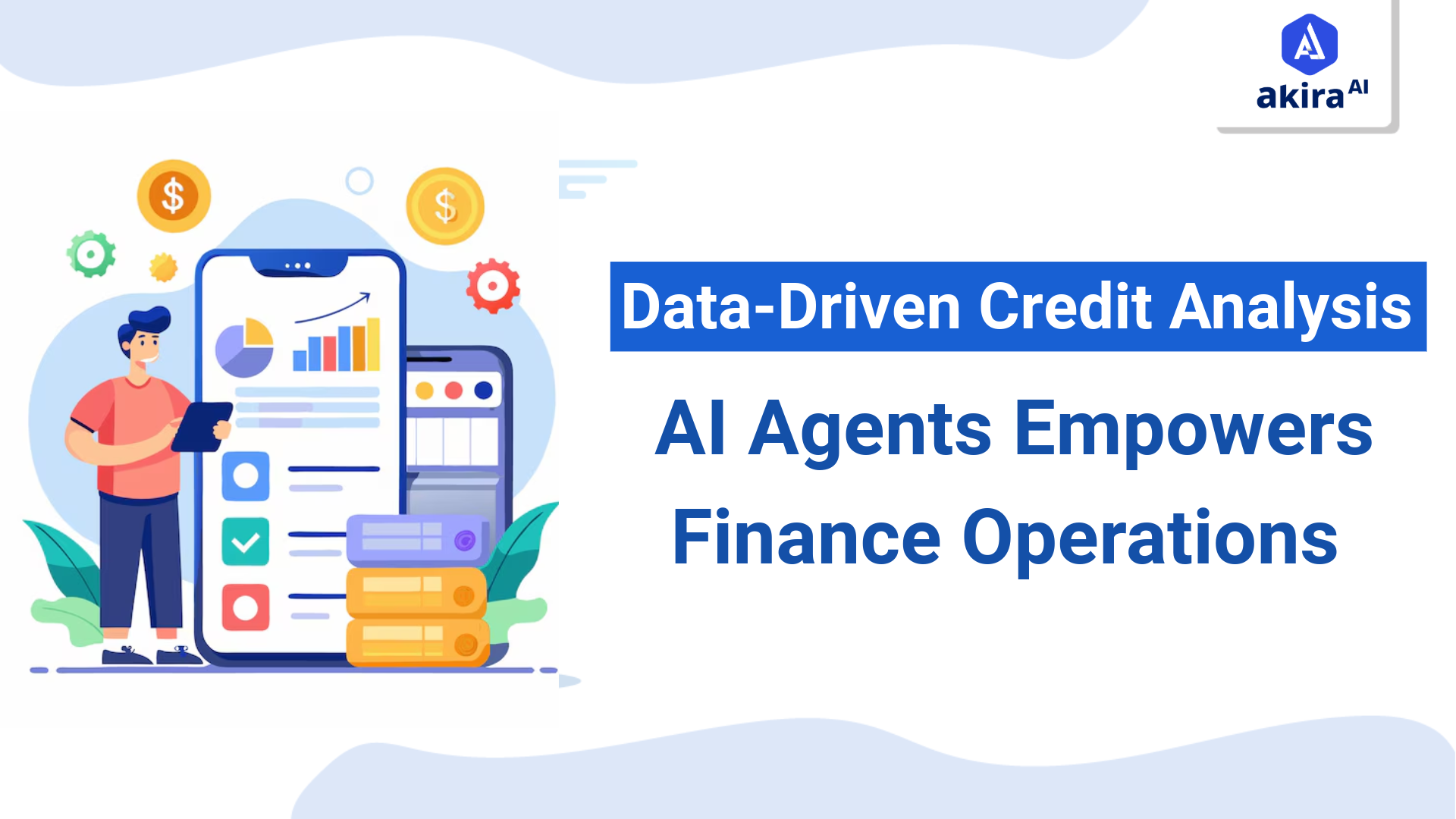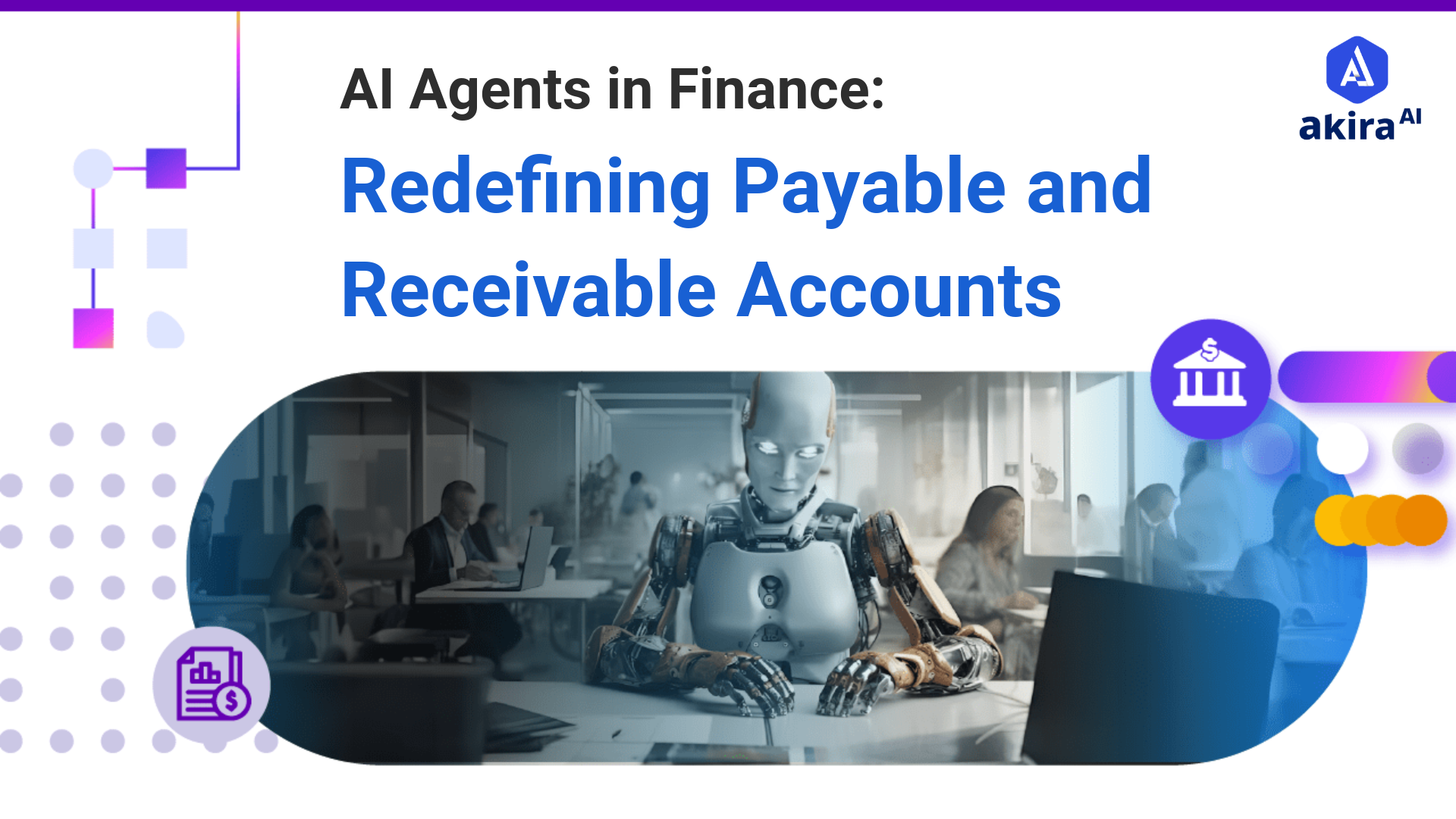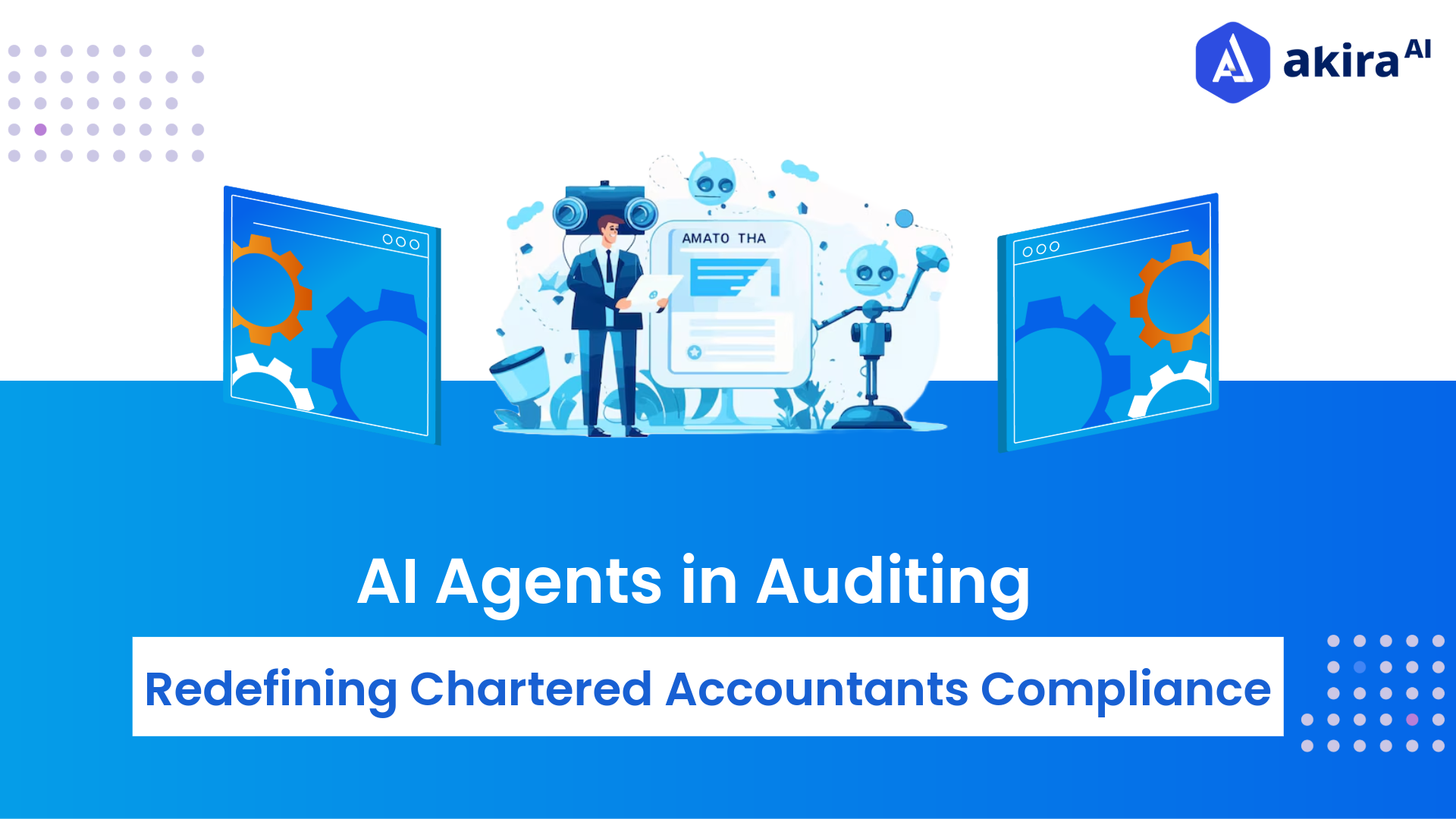Delays and errors often plague the finance sector due to the need for more task automation and tools to analyze data with the utmost precision. This results from the manual method of performing data analysis in traditional financial decision-making.
With the integration of AI Agents in finance, banks, and financial institutes can make sound decisions to counter this and improve efficiency, cost savings, and efficiency in managing operations, customers, and transactions. This blog discusses how AI agents contribute to efficient financial decision-making.
What is Financial Decision-making?
Financial decision-making is the process of considering different choices against available information that provides an appropriate way of investing or budgeting and managing risks to create long-term benefits for individuals and businesses. It is even more important because financial decision-making would affect capital structure and debt management, and even determine the state of the economy.
Overview of AI Agents in Finance
AI Agents leverage advanced machine learning, data analytics, and algorithms to enhance financial decision-making. These tools analyze vast amounts of data from multiple sources to identify trends and generate insights that inform sound financial choices.
A key advantage of these agents is their ability to save time. Automating data analysis frees finance professionals to concentrate on strategic activities, leading to better-informed and timely decisions. This shift allows users to optimize investment portfolios, refine budgeting strategies, and manage risks more effectively.
Incorporating agentic AI into financial processes improves efficiency and empowers individuals and businesses to navigate the complexities of today’s economic environment, ultimately driving more remarkable success.
Traditional vs. Agentic AI Financial Decision-Making
|
Aspect |
Traditional Approach |
Agentic AI Approach |
|
Data Utilization |
Relies on potentially obsolete data that may not reflect current market conditions. |
Continuously analyzes real-time data for current insights. |
|
Bias and Objectivity |
Prone to human errors, leading to bias and inconsistencies in results. |
Driven by data, reducing bias and promoting objective practices. |
|
Speed of Processing |
Slow and cumbersome manual processes; reactive to market changes. |
Automates data collection and analysis, significantly boosting speed and efficiency. |
|
Data Volume Handling |
Struggles to manage large datasets, often focusing on limited metrics. |
Easily scales to analyze vast datasets from multiple sources without limitations. |
|
Subjectivity |
Involves subjective decision-making based on personal judgment. |
Considers various data sources for a holistic view, reducing subjectivity. |
|
Flexibility and Adaptability |
Lacks flexibility; processes may not support new information effectively. |
Algorithms evolve to learn and adapt, improving predictive accuracy and enhancing risk management. |
How AI Agents Operate in Financial Decision-Making?
-
Data Aggregation: Systems gather information from various sources such as market reports, social media, and economic indicators, providing a comprehensive view of the financial landscape for more informed decision-making.
-
Real-Time Analysis: Continuous processing of real-time data delivers insights that reflect the current market situation, keeping organizations updated on changes and emerging trends to enhance competitiveness.
-
Predictive Analytics: Advanced algorithms identify patterns in historical data to forecast future market trends and financial outcomes, crucial for timely strategic adjustments.
-
Risk Management: Investment risks and credit assessments are evaluated by analyzing potential risk factors, enabling informed decision-making and refinement of risk mitigation strategies.
-
Task Automation: Routine tasks like data entry and reporting can be automated, freeing professionals to focus on strategic analysis and value-added decisions.
-
Scenario Simulation: Financial scenarios can be simulated, helping organizations visualize the implications of decisions before implementation and supporting effective strategic planning.
-
Continuous Learning: The system improves its algorithms with new information and past performance, enhancing predictive accuracy and the quality of financial insights.
- User-Friendly Interfaces: Intuitive designs simplify complex data insights, allowing financial managers to quickly understand and act upon the information.
Use Cases of Agentic AI in Financial Decisions
 Fig 1: Use Cases of Agentic AI in Financial Decision-Making
Fig 1: Use Cases of Agentic AI in Financial Decision-Making
- Fraud Detection and Prevention: Machine learning algorithms help AI agents analyze transaction patterns to point toward fraud. As these systems process and analyze new data quite effortlessly, by continuously learning from the new data they can easily adapt to new fraud tactics, allowing the banks to detect and prevent fraudulent activities in real-time and ensure safety for both the institution and the customers.
- Risk Management: The AI agents measure different kinds of risks, including credit and operational risks with market risks. In total, the AI tools analyze the largest sum of data using many sources for accurate assessment and risk predictions to aid decision-makers in lending, investments, and strategy.
- Personalized Financial Services: By analyzing the transaction history, spending habits, and preferences of customers, AI agents enable banks to give them the exact financial products and services they need. It increases loyalty and participation from customers since this offers them advice relevant to their problems.
- Algorithmic Trading: Agentic AI uses algorithms in trading to filter through vast amounts of market data, analyzing this and thus making trades at the right times. Generally, high-level predictive analytics and machine learning make such systems spot patterns that sometimes may skip human scrutiny to inflate returns while low risk occurs.
- Regulatory Compliance: Other challenges for the financial institution include the ever-changing regulatory issues. The AI agents make the process easy by monitoring transactions regarding any compliance issues, reporting automatically, and showing those areas of risk.
- Credit Scoring: Traditional credit scoring methods are based on rather thin data sets, which implies data inconsistencies. AI agents investigate substantially broader sets of factors, including alternative data from social media, payment history, and many other factors, to provide more holistic insight into an individual's creditworthiness and broaden access to credit potentially across underserved population groups.
Optimizing Financial Decisions with Akira AI
-3.png?width=1920&height=1080&name=image%20(2)-3.png) Fig 2: Optimizing Financial Decision-Making with AI Agents
Fig 2: Optimizing Financial Decision-Making with AI Agents
- Holistic Data Integration: Akira AI combines several uniquely blended data sets to provide a comprehensive view of specific financial dimensions for the user's requirements.
- Immediate Insights: The AI agent provides analytics in real-time, and the users can act fast on critical shifts in the market.
- Advanced Predictive Capabilities: Akira AI employs proprietary algorithms that improve the forecast's accuracy depending on the financial conditions in question.
- Detailed Risk Assessment Tools: Agentic AI represents specific application tools for calculating investment risk and credit scores, making it possible to support higher analysis of potential risks.
- End-to-end Automation: By automating complex processes, AI agents ensure simpler and more efficient workflows and smoother operations.
- Dynamic Scenario Planning: AI agents allow users to go through multiple scenarios filled with different variables to strengthen strategic planning.
- Adaptive Learning Framework: Akira AI is constantly learning from the actions of the users and shifts in the market for better recommendations. By continuously reading and assessing user behaviors and market changes, AI agents can come up with personalized recommendations.
- Customizable User Experience: The individual user preferences enable customization of the interface, ensuring that relevant insights are easily accessible and actionable.
Benefits of AI Agents in Financial Decision-Making
-
Increased Efficiency: Automation of manual data analysis reduces the time taken by financial teams to make decisions.
-
Enhanced Accuracy: AI-driven insights are less prone to human errors and biases, hence more reliable outcomes.
-
Cost Savings: Process streamlining along with improved decision quality leads to savings of operational costs that an organization incurs through financial analysis.
-
Enhanced Predictive Analytics: These agents can analyze vast amounts of data to identify trends and forecast market movements. This predictive capability allows users to make proactive financial decisions, optimize investment strategies, and increase returns.
-
Personalized Financial Strategies: This multi-agent system can tailor financial advice and strategies based on individual user profiles, goals, and risk tolerance. This customized approach ensures users receive recommendations that align closely with their unique financial situations, leading to better outcomes and increased satisfaction.
AI Agents Technologies Transforming Financial Decision-Making
- Natural Language Processing (NLP): NLP allows machines to comprehend and interpret human language, enabling faster communication of financial insights. This technology helps analysts quickly grasp complex information and insights. By streamlining reporting and facilitating real-time updates, stakeholders are kept informed and engaged.
- Advanced Predictive Analytics: This technology analyzes market trends, customer behavior, and economic indicators to provide actionable insights. It equips organizations to forecast outcomes and make informed, data-driven decisions. By identifying patterns and potential shifts, it aids in developing robust financial strategies that mitigate risk.
- Machine Learning Algorithms: Machine learning algorithms improve accuracy over time by learning from new data inputs. They can identify hidden patterns and trends in large datasets, providing deeper insights. This adaptability allows organizations to respond proactively to changing market conditions.
- Robotic Process Automation (RPA): RPA automates repetitive tasks like data entry and reporting, minimizing human error and increasing operational efficiency. This technology streamlines processes, allowing finance professionals to focus on strategic initiatives rather than mundane tasks. By improving accuracy and speed, RPA enhances overall productivity.
- Blockchain Technology: Blockchain offers a secure, transparent method for recording transactions, enhancing trust in financial dealings. It reduces the risk of fraud by creating immutable records of transactions. Additionally, it facilitates faster, more efficient cross-border payments, benefiting international financial operations.
The Future of AI Agents in financial decision-making
-
Increased Personalization:
Future AI Agents will offer highly personalized financial insights tailored to individual user needs and preferences. By leveraging vast amounts of data, these systems can predict user behavior and recommend actions that align with personal financial goals. This trend will empower users to make more informed and relevant decisions.
-
Real-Time Decision-Making:
As technology evolves, the ability to make real-time financial decisions will become more prevalent. These agents will analyze data as it streams in, allowing organizations to respond immediately to market changes and opportunities. This capability will enhance agility, enabling faster adjustments to strategies and operations.
-
Enhanced Risk Management:
Such agents will continue to advance in identifying and mitigating financial risks. By utilizing predictive analytics and machine learning, organizations can anticipate potential issues before they arise. This proactive approach to risk management will strengthen financial stability and minimize losses.
-
Integration of AI and Human Expertise:
The future will see a greater collaboration between AI tools and human financial experts. While these AI systems can handle data analysis and routine tasks, human judgment will remain crucial for strategic decision-making. This synergy will lead to more balanced and informed financial decisions.
-
Expansion of AI in Regulatory Compliance:
These agents will play an increasingly important role in ensuring regulatory compliance within the financial sector. Automated systems will analyze transactions and identify anomalies to flag potential compliance issues. This trend will reduce the burden on human resources and enhance the accuracy of compliance efforts.
Conclusion: AI Agents for Financial Decision-Making
In a nutshell, AI agents are transforming the way financial decisions are made. By enhancing accuracy, efficiency, and insights, these intelligent tools are reshaping financial processes. They provide data-driven insights that empower decision-makers to navigate complex market landscapes more effectively. As a result, organizations can make informed choices that drive economic growth and stability. The integration of AI in finance not only streamlines operations but also fosters a proactive approach to risk management and opportunity identification. With ongoing advancements, AI will play an increasingly vital role in shaping the future of financial decision-making, leading to a more robust economic environment.


